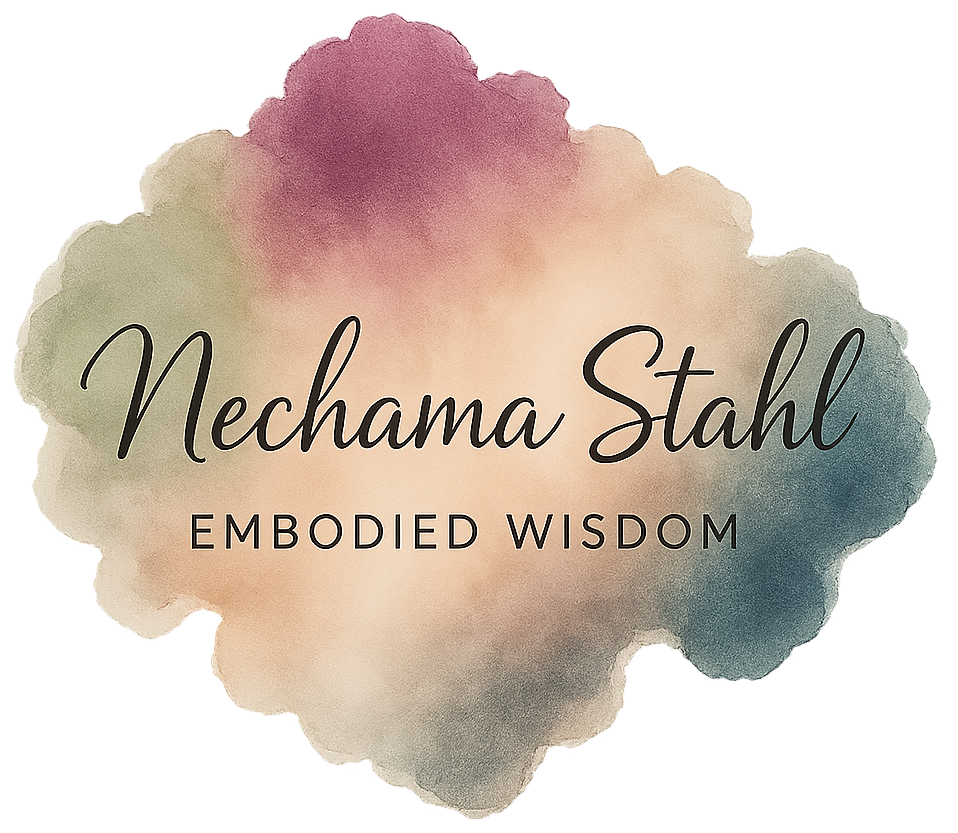
Lo Sirtzach: Confessions of a Would-Be Murderer
Sep 10, 2025“You Shall Not Murder.”
What better way to wrap up a Tuesday than with a hearty talk about murder?
Yes, I know - very macabre of me. But stay with me here.
I had a plan for this week - somewhere I was supposed to be, something I was supposed to be doing... and I’m not. If you’ve been following along, maybe you’ve noticed the theme: Hashem keeps putting me right back into my avodah.
So: murder.
The Torah actually has a lot to say about it, and not only in the way you’d expect.
From Makom to Mankind
We’ve just walked through the first five Dibros - the bein adam laMakom side - all about aligning with Source.
The word Makom means both “God” and “place,” reminding us there’s nowhere Hashem isn’t.
As Rabbi Royde once taught, Uncle Moishy got it wrong: Hashem isn’t everywhere - everywhere is Hashem.
There is no place, person, or single molecule of space that isn’t Him.
When we live in tune with that, life gains shape and direction. With that foundation in place, it makes sense that how we treat others - and ourselves - is the natural continuation.
So the Torah moves seamlessly into the next Dibbur:
“Lo Sirtzach - Do not murder.”
Notice it doesn’t say don’t kill, it says don’t murder.
This isn’t only about taking life. It’s about wasting life. About forgetting there’s a Grand Master behind every happening.
Murder is the act of seizing control - pushing God out of the picture.
Why do people murder? For greed. For power. For revenge.
But if I truly believe that Makom is everywhere - that the insult, the hurt, the betrayal all come through Him - then even in the rawest moment I can whisper: Hashem is here too.
Justice still matters. Torah insists on accountability. But there’s a difference between responding with justice and reacting with murder.
This commandment asks us to catch ourselves in that split-second before the rash act, realign with truth, and choose holiness over impulse.
With G-d
Remember: He is behind all things that happen to you.
These last few weeks have been tough. A certain someone - who may or may not be married to me - has been a source of myriad emotions, not all pleasant. Oh, how easy it would’ve been to slip into self-righteous victimhood and wallow. (And yes, I may or may not have done exactly that on some days.)
But I also had a choice: to hold myself to a higher standard.
To recognize that this person is just a messenger.
For reasons far above my pay grade, I needed to feel this, go through this.
When I looked up and whispered, “Hashem, I know this is You. Please help me get through this with grace,” my script shifted.
The outcome wasn’t what I expected - but it was perfectly right.
Maybe that’s what maturing looks like.
Practice:
Next time someone causes you pain, pause.
Can you say: I know this is coming from You. Help me carry it so I’m not alone.
With Self
This one happens so quietly it’s easy to miss.
How often do we quietly kill off parts of ourselves in the name of survival?
To fit in? Because someone once told us we were too much or not enough?
So we cut off those parts.
We exile them.
We lose touch with them because there was no safe place for them to be.
But Lo Sirtzach whispers differently: the same Source that created me created every part of me.
Maybe I need to navigate that part with more wisdom, balance how it shows up - but to kill it off completely? That’s not the solution.
As the Ramban teaches: all in moderation. The goal is harmony, not homicide.
Practice:
What triggers your sharpest judgment in others?
Could it be a long-buried part of you, waiting to be acknowledged and brought back to life?
With Spouse
Let’s be honest- the murdered-husband jokes practically write themselves here. 😉
But jokes aside, how easily do we demand our spouses become the curated versions of themselves we prefer?
How often do we “train” them into roles that feel comfortable for us, killing off essential parts of who they are?
Just as the first bein adam laMakom Dibbur was about acceptance (Anochi Hashem), so too this first bein adam l’chaveiro Dibbur begins with acceptance.
Can I accept my spouse as they are?
This doesn’t mean ignoring communication - it means grounding it in love and respect.
When we start from acceptance, our requests become gentler, our words more honest.
Practice:
Think of one part of your spouse you’ve tried to “murder.”
Ask yourself: What about this bothers me?
The answer may reveal more about you than about him.
And if something truly needs to shift, can you ask rather than demand?
The Long Road Back to Makom
The more we align with Hashem’s vibrational standard, the easier it becomes to live from respect, awe, and love.
And isn’t that what Torah’s been asking all along?
As the Midrash teaches:
“My children, did I make you lacking of anything?
What did I ask of you?
Only that you love one another, honor one another, and live in reverence together.”
— Tanna D’Vei Eliyahu Rabbah
When we honor, love, and revere each other,
we are really honoring, loving, and revering the Makom Himself - the One who is everywhere, and everything.




